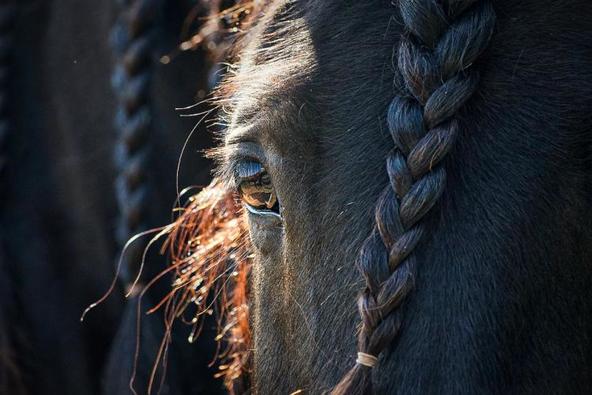2022 Kentucky Equine Survey Hitting Mailboxes Now

University of Kentucky‘s Ag Equine Programs and the Kentucky Horse Council are again partnering on the 2022 Kentucky Equine Survey, a statewide comprehensive survey of all horse breeds. The study is in conjunction with the Kentucky field office of the U.S. Department of Agriculture’s National Ag Statistics Service and is a follow-up to the study completed 10 years ago.
The USDA’s National Agricultural Statistics Service is selecting 15,000 "horse-holds" to provide vital data about Kentucky's equestrian industry. Organizers urge those receiving a survey in the mail to promptly complete and return the information. There is an online option to complete the survey as well.
“If you receive a questionnaire in the mail, please complete it. It will take some time and effort, but the information that is collected is important to the future of our state’s signature industry,” said Jill Stowe, UK agricultural economics professor and project leader. “We are excited that the time has arrived, and we look forward to a strong response from Kentucky’s horse operation owners.”
The study seeks to obtain an accurate inventory of all equines in the state by breed and use. Horses, mules, donkeys and ponies being inventoried include those on owned farms as well as those being boarded at equine boarding and breeding facilities.
According to Sarah Coleman, executive director of the Kentucky Horse Council, accurate counts equines in Kentucky will improve equine health care, inform workforce development, aid in supporting proposals for business ventures and grants, identify emerging markets, and empower state and local policymakers with critical information to make informed decisions.
All farm and individual names are confidential and will not be available to any state or federal agency, nor to UK or the Kentucky Horse Council. Stowe said they expect to have summary results from the survey in December, with in-depth results arriving in early 2023.
The study was partially funded by a Kentucky Agricultural Development Fund grant; additional funding has been secured by UK’s College of Agriculture, Food and Environment, the Kentucky Horse Council and myriad equine industry supporters.
For more information about the Kentucky Equine Survey, visit https://equine.ca.uky.edu/kyequinesurvey or the Kentucky Horse Council, www.kentuckyhorse.org/.
Credits
Words: Holly Wiemers (UK Ag Equine Programs)
Photo: Hannah Waroway

